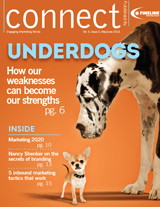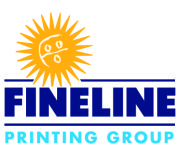4 Go-To-Market Lessons to Learn From Under Armour Founder

A go-to-market strategy can be a simple plan that can help your company reach your customers and achieve competitive advantage. Learn how Kevin Plank, Founder & CEO of Under Armour, took on Nike with these simple lessons.
By Michael J. Pallerino
“We have a chip on our shoulder, and that chip doesn’t go away, because there’s not a finish line. It’s not about hitting some number. It’s much greater than that, and frankly, it’s much more purposeful than that.”
– Kevin Plank, Founder & CEO, Under Armour
It’s fair to say that Nike never saw it coming. In 1996, the all-everything brand was comfortably positioned as the sporting goods leader in footwear and apparel, not to mention a marketing trendsetter whose print and TV campaigns still stand as teaching tools today (“I Want to be Like Mike” and “Just Do It,” to name two). With the Olympics back on American soil in Atlanta, the brand was preparing to introduce a slew of cutting-edge designs and marketing campaigns to further cement its growing legacy.The modern-day Goliath was the creation of Phil Knight, the former University of Oregon track star who transformed the athletic footwear world with his waffledesign outsoles. Knight’s eventual business plan was spelled out in a term paper he wrote while working on his master’s degree at Stanford University. The paper outlined a strategy for breaking the stranglehold Adidas had on the running-shoe market by using cheap Japanese labor to manufacture a cheaper, better-quality running shoe.
As the David to Adidas’ Goliath, you would have thought that Knight and company would have seen somebody like Kevin Plank working in the shadows. In 1995, Plank devised the idea for Under Armour while playing football at the University of Maryland. In 1996, using $15,000 of personal savings and charging $40,000 on his credit cards, he set out to change the sports compression market, with Nike’s Dri-Fit technology as one of his targets.
In five years, Plank would turn his $55,000 investment into a $5 million company. Today, according to the most recent numbers from Forbes, Under Armour’s net worth is $3.3 billion. The more interesting part of this story is that Plank, founder and CEO, still considers his brand an underdog.
The intensely driven entrepreneur is on record as saying that his company’s growth can be traced back to lessons learned early on. Plank often has been quoted as saying,“There have been all sorts of ups and downs, but we have learned at every stop and we have used those lessons to make ourselves better.”
“An underdog can certainly win as evidenced by Under Armour’s success,” says Matt Powell, an analyst for The NPD Group who has tracked the sporting goods market for the last 20-plus years. “Under Armour kind of snuck in while Nike was distracted by other business issues. Its initial entry was word of mouth, player to player. Then, it found an ally in Dick’s Sporting Goods, which believed in the brand.”
Powell says that, while small businesses always will face challenges, being able to find opportunities when none seem to exist is critical. “Under Armour was able to secure financing early, which helped them get to critical mass. Whenever competition ignores you, it leaves the door open for a company to gain a beachhead. Leveraging that opening is key.”
Stand up and be counted
4 Marketing Lessons We Can All Learn From David & Golaith
David Prosser isn’t quite convinced that the story of David & Goliath was originally intended as a Biblical story. Instead, he says the oft-repeated tale shows how ordinary, seemingly insignificant individuals can stand up and declare a bold, nearly impossible future.
#1 Nothing is impossible
David found that weak point in Goliath’s armor, which allowed him to triumph in the battle. You must find the proper approach, and/or bide your time for the right opportunity to take action.
#2 Lead by your actions
David faced his fear and stood his ground, which in turn inspired an entire army. You can inspire your peers and coworkers to new heights through your actions.
#3 Don’t over-complicate things
Remember that David won using very basic tools and a simple approach. This proves that simple solutions almost always are the most effective, even to what initially may appear to be a monstrous problem.
#4 Perspective is everything
David understood the task at hand, even while everybody doubted the outcome. To transform your company, you must transform your perspective of what’s possible given the values and principles that make up your view of your place in the world.
Want more?
Subscribe to Connect today.
Coming soon to your mailboxes and doorsteps!

